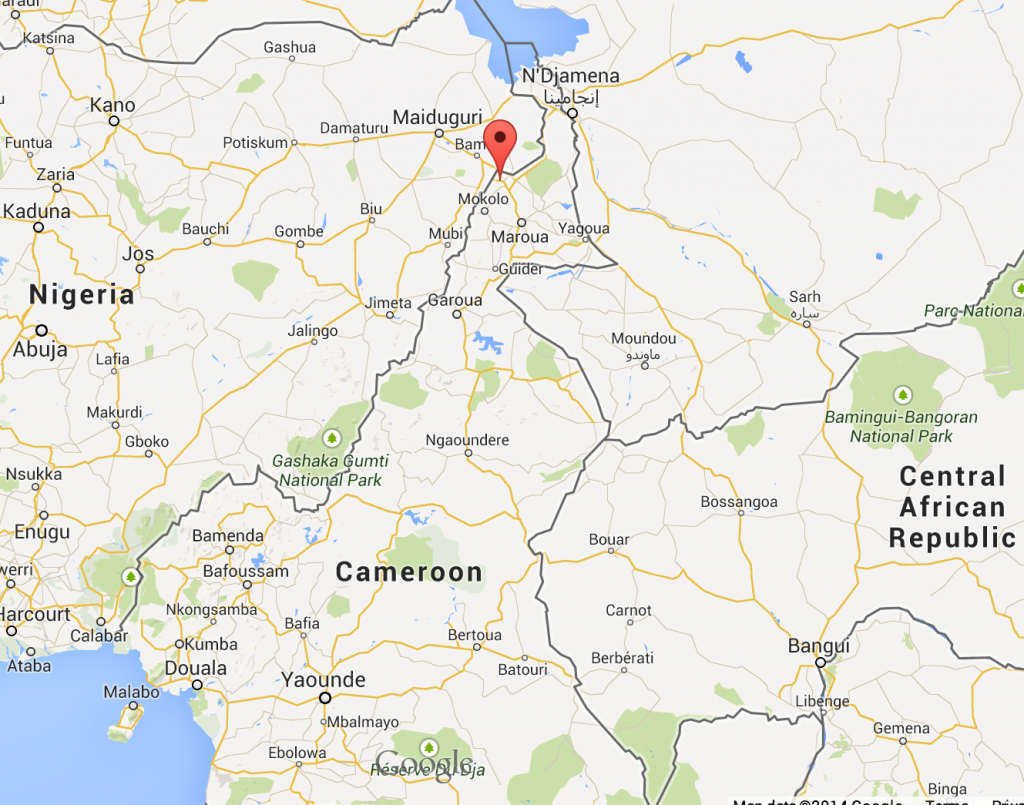Boko Haram has spent much of the second half of 2014 attempting to breach the Nigerian-Cameroonian border permanently, to spread the war and their territory to a wider sphere of control — much like ISIS crossing from Syria back into Iraq and breaking up the colonial borders. Boko Haram kidnapped the Cameroonian Deputy Prime Minister’s wife from her home (she was eventually released under undisclosed terms) and staged dozens of major attacks on border villages in the country’s less populous and less hospitable northern regions.
AFD Background Briefing: The country, which is located next to Nigeria, Boko Haram’s home base, said it was going to war with Boko Haram back in May of this year when hundreds of Nigerian schoolgirls were kidnapped in a raid. The girls are believed to have been taken to the forests near the border with northern Cameroon.
At great cost, Cameroon has held the line so far:
The strain is tangible. Cameroon’s elite Rapid Intervention Battalion, commonly known by its French acronym BIR, has lost dozens of men since the beginning of the year in the fight against Boko Haram.
About 1,000 men from BIR, trained by US and Israeli forces, have been deployed along a 500-km (300- mile) stretch of porous border with Nigeria. Boko Haram is advancing and Cameroon’s military fight daily battles to keep the boundary with Nigeria – Africa’s most populous state – intact.
Cameroon’s military recently dispatched another 2,000 soldiers to the border region to reinforce troops.
Last month, Boko Haram attacked the military post at Amchide with a tank.
They are certainly a more competent military force than Nigeria’s. But troops on the ground are already starting to wonder why France has not sent help from their base not so far away in the capital of Chad.
There are also rumors (outside Cameroon, at least) that President Paul Biya might be vulnerable to being forced from power like Blaise Compaoré of Burkina Faso a few weeks ago. Biya just celebrated his 32nd anniversary as president (after 7 years as prime minister before that). Without the immense pressure coming from Boko Haram attacks, he would probably still be fine for a while, but this could potentially destabilize his regime.
More background from our prior briefing report:
Cameroon — a country once carved out of colonial remainders by Imperial Germany and then split at random by France and Britain before re-merging itself after independence — now finds itself as an unusually stable dictatorship wedged between the rising conflict in northern Nigeria and the genocidal civil war in Central African Republic, exposed along lengthy borders on both sides. The populations in northeast Nigeria and northern Cameroon have long had cultural and economic interchange, since the border was an arbitrary colonial one crossing through an existing society.

The government of Cameroon has taken a hard line previously against neighboring rebel factions operating within its borders, knowing that letting them build up typically means trouble for the host country eventually. Now it may have dragged itself definitively into this conflict by publicly siding against Boko Haram.


